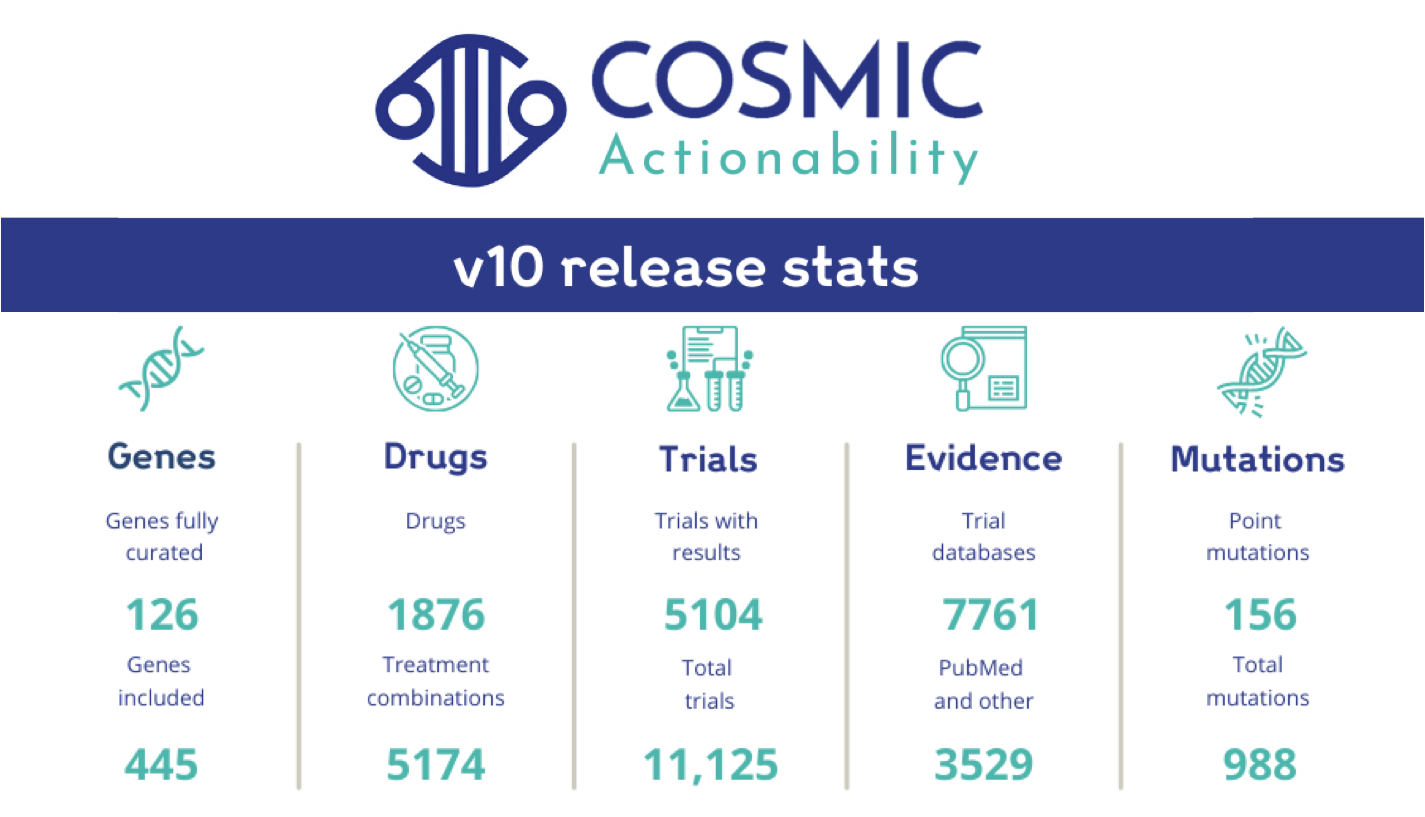


















Announcing the newest COSMIC release, COSMIC Actionability v10! This release enriches the world's largest expert-curated somatic mutation database with new actionability data, including 27 new fully curated somatic genes, 769 fresh clinical trials, 41 additional oncology drugs, and more!
→ View the full Actionability v10 release notes here.
COSMIC, the Catalogue of Somatic Mutations in Cancer, is an expert-curated database encompassing the wide variety of somatic mutation mechanisms causing human cancer. Owned and maintained by the Wellcome Sanger Institute, COSMIC is exclusively licensed through QIAGEN.
COSMIC’s team of variant scientists manually curates key cancer genes to provide in-depth information on mutation distributions and effects. The team relies on a semi-automated curation process of cancer genomes to provide broad somatic annotations toward target discovery and identification of patterns and signatures. To date, COSMIC contains nearly 24 million somatic mutations associated with human cancers.
COSMIC Actionability is a standalone product within the COSMIC database that focuses on providing information on the availability and development of drugs targeting somatic mutations in cancer. COSMIC’s certified curation team integrates data from case studies, clinical trials, and regulatory bodies to represent a full picture of the current precision oncology pipeline (from drug development, through safety and clinical phases, to market and repurposing).
Actionability contains information on three core units: mutations, diseases and drugs. By capturing relations between these units, COSMIC’s team identifies existing and upcoming drugs that target specific genetic variants in different cancer types. COSMIC Actionability is a cutting-edge, ‘living-tool’ that provides the most up-to-date data for precision oncology applications.
Learn more about COSMIC and how the industry-leading database can help you identify biomarkers, annotate variants, and explore the etiology of human cancers here.
See first-hand how COSMIC can be used in your lab by downloading sample data here.